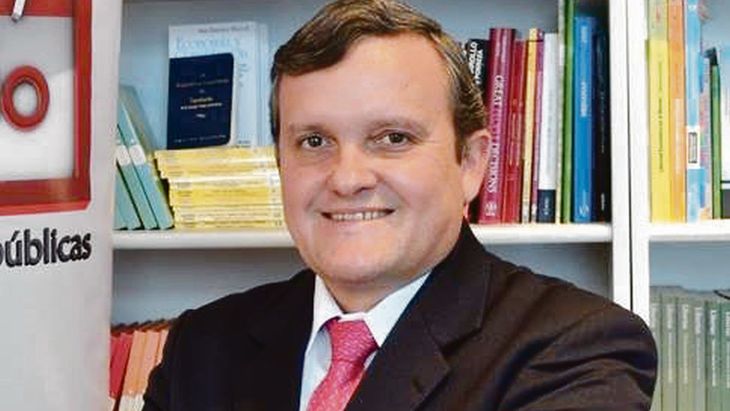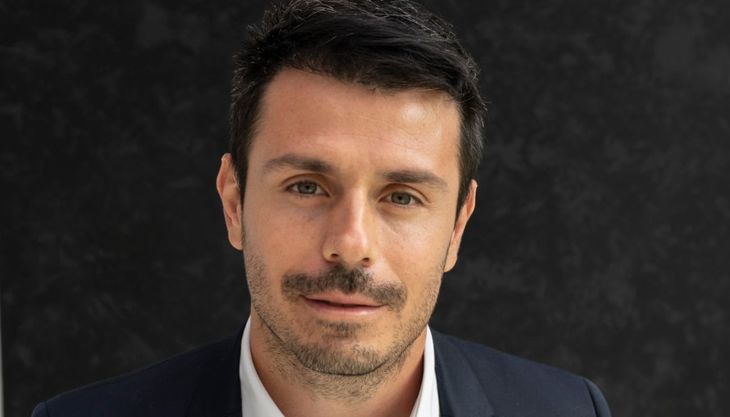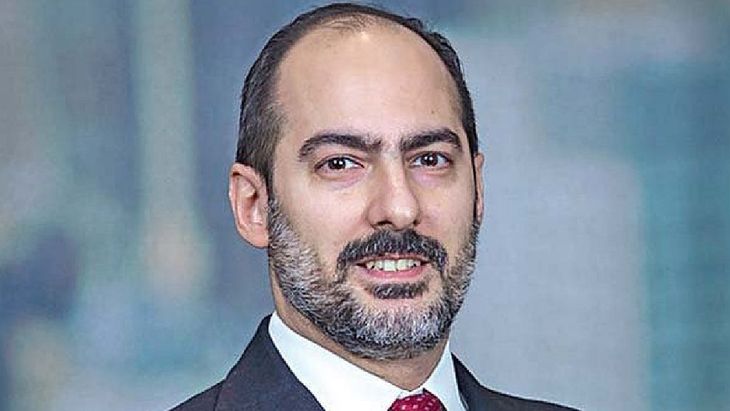Gustavo Ber, economist, head of Estudio Ber
Gustavo Ber.jpg
“The first reading of the PASO shows a scenario of greater uncertainty and volatility at least until the October elections, with chances of extending until November, which would continue to promote a sustained dollarization and would simultaneously trigger a correction in financial assets, since they had been discounting other electoral scenarios,” said the analyst.
Fernando Marull, Partner at FMyA
image.png

“Once again the STEP generate a shock”says Marull’s report. The analyst recalled that the surveys said 37% JxC, 32% UxP and Milei 20% and that the result was different. “The polls said 3 thirds 2 months ago, not lately,” he said. In addition, he remarked that “the provinces were not a good predictor, where Milei got only 4%.”
In addition, Marullo indicated that Kicillof won in the Province of Buenos Aires PBA and Together for Change made a good choice in CABA. “In summary: there was a “rant vote” that was reflected in the low participation (69% versus historical average of 78%), structures were not voted (Milei won 16 of the 24 provinces and even where governors won) and with a clear message that Argentina wants change”. For the analyst, Together for Change was not the vehicle and that message was channeled through Milei. “The Milei’s vote (+30%) + JxC (+28.3%) got 58%, much more than expected“, he expressed.
Gustavo Quintana, public accountant, Bachelor of Administration and exchange operator in PR
Gustavo Quintana.jpg

“The Central Bank made an important adjustment in the wholesale exchange rate, causing a devaluation that will be accompanied by a sharp rise in the interest rate, of 22%. The exchange rate will remain fixed until October, with which they intend to stimulate the entry of dollars into the official one, we will see if they are successful with that”Quintana maintained.
Aldo Abram, Executive Director at Libertad y Progreso
PAGE5-ALDO ABRAM.jpg

“They have made a strong rise in the retail dollar and consequently all the others, as to reduce demand in those markets, that the truth does not affect the price level of goods and services that are sold abroad so much: what you you buy in the gondolas, those move by the wholesale dollar, it may be for this reason that they are not going to increase it and they have decided that those who buy with a card, tourist dollar, travel abroad, pay more for dollars to reduce the demand for dollars , because they are running out of foreign currency. What they received from the IMF was the strict and necessary amount to pay them until November, which would be the next measurement.”
“This is better from the standpoint of the solvency of the Central Bank than the COUNTRY Tax, which was simply collection. Although the demand for foreign currency from the Central Bank decreased, which was good, on the other hand, it appropriated that exchange rate increase that would have been good for the Central Bank, because it is actually selling the retail dollar to the wholesale dollar, the rest are taxes, which discourages lower demand. But, on the other hand, they are buying the agricultural dollar to sell the wholesale dollar with a phenomenal loss that the bonds that the Government gives them do not cover, because they are not given at market value, which is much lower. This for the Central Bank is to discourage retail demand: card, tourism and all that, but at least let the Central Bank keep the difference.”
Alfredo Romano, director of the Economics and Finance area of the consultancy Romano Group
ALFREDO ROMANO.jpg

“The weakness of the government is beginning to materialize. Unfailingly, this government started with the monetary adjustment that Argentina had to face. My vision is that the official dollar will not be maintained at $350 until October 23, which is not the equilibrium price yet. It will need more adjustment”said Roman.
“Now it is essential to see how the link of the International Monetary Fund (IMF) with Argentina will be. Let’s remember that after PASO 2019, with the liquefaction of power of Mauricio Macri, the Fund decided to move and wait to talk with the new economic team “, he added.
Within this framework, Romano assured that it is “difficult to know” what will happen in the short term because there will be a lot of volatility. “There can be overshooting. From our consultancy we do not rule it out. Argentina got almost 60% with right-wing pro-market leaders. In the short term, the adjustment will begin, but if the necessary agreements between La Libertad Aavanza and Juntos por el Cambio are made, Argentina has a very hopeful future in economic matters.”
“Our country inevitably needs to reform the size of the State, labor reform the relationship between companies and employees and carry out the monetary reform towards a dollarization of its currency,” he concluded.
Gonzalo Chiarullo, Vice President and CEO of Número Bursátil
Gonzalo Chiarullo.jpg

“The disruption of a candidate who was not surprising in the provincial tests hits a bump and wins an election that, after the experience of 2019, awakens post-traumatic stress disorder in the market. The probability of occurrence of such a decisive victory in the majority of the national territory was so low that today the market wakes up with the question of how the different prices will respond,” Chiarullo analyzed.
What can happen?asked Ambit. “You have to analyze the power gained, instead of projecting the result. Estimating that if Milei repeats the result, he is already the next President attests to a myopia that does not see the history of the Argentine elections. Being so soon, it is necessary to establish the emerging power structure of this election and the probability that the economic strategy of each candidate is central, regardless of whether or not he reaches the re Rivadavia seat”.
For the analyst, the La Libertad Avanza candidate is the “only one who has said what his economic plan is”, and having obtained the largest number of votes, he is the one with the highest probability of occurrence. “Javier Milei is the candidate for the openness of macroeconomic variables, austerity and destegulation. Being honest with the macro variables implies a single official exchange rate determined by the market and free access to different currencies, which makes it possible to anticipate a devaluation of the official one until reaching values close to the CCL and a freely floating blue dollar.if it continues to exist after a devaluation of that magnitude,” he said.
For Chiarullo, austerity means a considerable reduction in public spending, with voluntary withdrawals of state personnel, wage freezing and privatization of public companies. “It allows us to predict a conflictive front in the social field, a fall in the purchasing power of the employed sector and a very marked tendency to open capital. And due to deregulation, a very high inflow of international currencies is expected in terms of investment in the real economy. This plan may bring disparity in the medium and long term projections.
What to expect in the short?, insisted this medium. “Possibly yesterday’s result brings international uncertainty, so it could push down the sovereign and sub-sovereign debt prices. This would not be sustainable over time, but it is likely that the outlook will not be cleared up during In the coming weeks, volatility will be the main variable to take into account in the prices”.
Diego Pereira, JPMorgan analyst
Diego Pereira.jpg

“We maintain the weighting of the Argentine market in our EMBIGD model portfolio, taking into account the increase in uncertainty that will set the pace of the electoral process,” the analyst said.
At the same time it projects “increasing pressure on the exchange rate, which would result in a widening gap between the parallel and the official exchange rate“.
Source: Ambito




